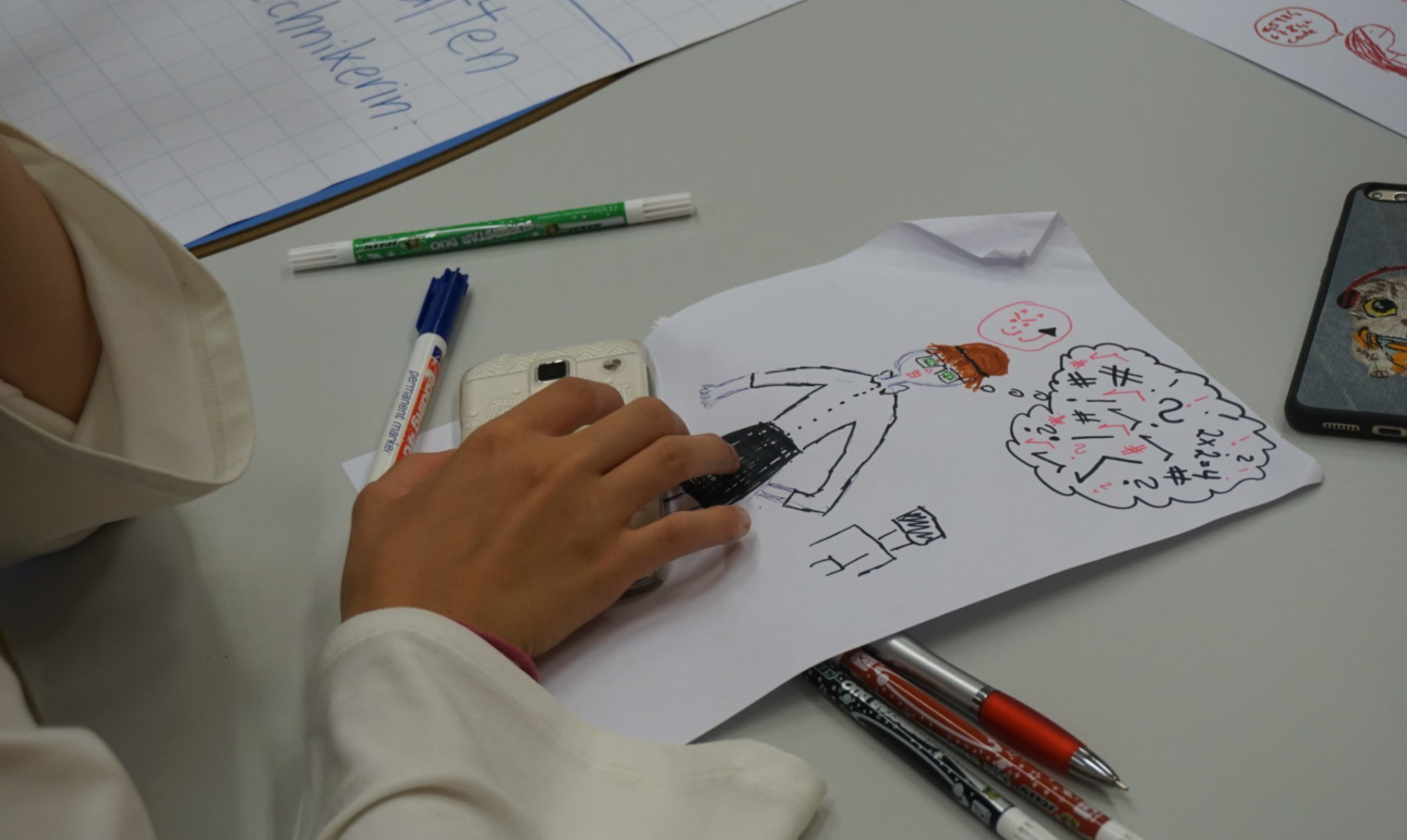Zitationshinweis: Spieler, B. (2023). Empfehlungen für gendersensible MINT-Angebote für Schülerinnen am Beispiel der Schweiz. In: Jeanrenaud, Y. (eds) Teaching Gender in MINT in der Pandemie. Edition Fachdidaktiken. Springer VS, Wiesbaden. https://doi.org/10.1007/978-3-658-43375-8_5
Continue reading “[German] Empfehlungen für gendersensible MINT-Angebote für Schülerinnen am Beispiel der Schweiz”[German] „BioTinkering – Biologie Als Faszinierendes Making-Thema in Den Naturwissenschaften: Überlegungen Zur Konzeption Und Durchführung Von BioTinkering-Aktivitäten“
Zitationshinweis: Furrer, F., Schläpfer-Miller, J., Spieler, B. und Dahinden, M. (2023). „BioTinkering – Biologie Als Faszinierendes Making-Thema in Den Naturwissenschaften: Überlegungen Zur Konzeption Und Durchführung Von BioTinkering-Aktivitäten“. MedienPädagogik: Zeitschrift für Theorie Und Praxis Der Medienbildung 56 (Making & more):69-97. https://doi.org/10.21240/mpaed/56/2023.12.03.X.
Continue reading “[German] „BioTinkering – Biologie Als Faszinierendes Making-Thema in Den Naturwissenschaften: Überlegungen Zur Konzeption Und Durchführung Von BioTinkering-Aktivitäten“”[German] Empfehlungen für gendersensible MINT-Angebote (WhitePaper)
Zitationshinweis: B. Spieler (2023) Empfehlungen für gendersensible MINT-Angebote. digitalswitzerland. (WhitePaper), Veröffentlicht am: 23.01.2023 Link: https://digitalswitzerland.com/de/empfehlungen-fuer-gendersensible-mint-angebote/ |
Beliefs and Expectations of Primary Student Teachers in
Informatics
Reference Format: Bernadette Spieler, Tobias M. Schifferle, and Tobias Berner. 2022. Beliefs and Expectations of Primary Student Teachers in Informatics. In Proceedings of
the 17th Workshop in Primary and Secondary Computing Education (WiPSCE
’22), October 31-November 2, 2022, Morschach, Switzerland. ACM, New York,
NY, USA, 4 pages. https://doi.org/10.1145/3556787.3556868
Informatics”
Digital Games in Schools: A Qualitative Study on Teacher’s Beliefs
Reference Format: B. Spieler and A. Degonda (2022): Digital Games in Schools: A Qualitative Study on Teacher’s Beliefs. Proceedings of the 16th European Conference on Games Based Learning. p. 543 – 551, ISBN: 978-1-914587-52-8
Continue reading “Digital Games in Schools: A Qualitative Study on Teacher’s Beliefs”Maker-Education: Interdisciplinary Computer Science Activities
Reference Format: Spieler B. and Schifferle T.M. (2022). Maker-Education: Interdisciplinary Computer Science Activities. Informatics in Schools. A step beyond digital education. 15th International Conference on Informatics in Schools: Situation, Evolution, and Perspectives, ISSEP 2022, Vienna, Austria, September 26–28, 2022. p. 122-123.
Continue reading “Maker-Education: Interdisciplinary Computer Science Activities”The “Making at School” Project: Planning Interdisciplinary Activities
Reference Format: Bernadette Spieler, Tobias M. Schifferle, and Manuela Dahinden. 2022. The “Making at School” Project: Planning Interdisciplinary Activities. In Proceedings of the 27th ACM Conference on on Innovation and Technology in Computer Science Education Vol. 2 (ITiCSE ’22). Association for Computing Machinery, New York, NY, USA, 624. https://doi.org/10.1145/3502717.3532150
Exploring Making in Schools: A Maker-Framework for Teachers in K12
ACM Reference Format: Bernadette Spieler, Tobias M. Schifferle, and Manuela Dahinden. 2022. Exploring Making in Schools: A Maker-Framework for Teachers in K12. In 6th FabLearn Europe / MakeEd Conference 2022 (FabLearn Europe / MakeEd
2022), May 30–31, 2022, Copenhagen, Denmark. ACM, New York, NY, USA,
7 pages. https://doi.org/10.1145/3535227.3535234
[in German] Online-Lehre zu Zeiten von Corona: Kein Problem für die Informatik-Didaktik?
Zitationshinweis: Spieler, Bernadette (2022): Online-Lehre zu Zeiten von Corona: Kein Problem für die Informatik-Didaktik? In: Online-Magazin Ludwigsburger Beiträge zur Medienpädagogik, Ausgabe 22/2022. URL: medienpaed-ludwigsburg.de/
Continue reading “[in German] Online-Lehre zu Zeiten von Corona: Kein Problem für die Informatik-Didaktik?”[in German] Gendersensible Gestaltung eines Computational-Thinking-Kurses mit Hilfe des PECC-Modells
Zitationshinweis: Spieler, B. (2022): Gendersensible Gestaltung eines Computational-Thinking-Kurses mit Hilfe des PECC-Modells, In: R. Knackstedt, J. Sander, J. Kolomitchouk (Hrsg.) Kompetenzmodelle für den Digitalen Wandel: Orientierungshilfen und Anwendungsbeispiele, Springer-Verlag GmbH, Berlin, Deutschland, S. 183 – 201. https://doi.org/10.1007/978-3-662-63673-2_9
Continue reading “[in German] Gendersensible Gestaltung eines Computational-Thinking-Kurses mit Hilfe des PECC-Modells”